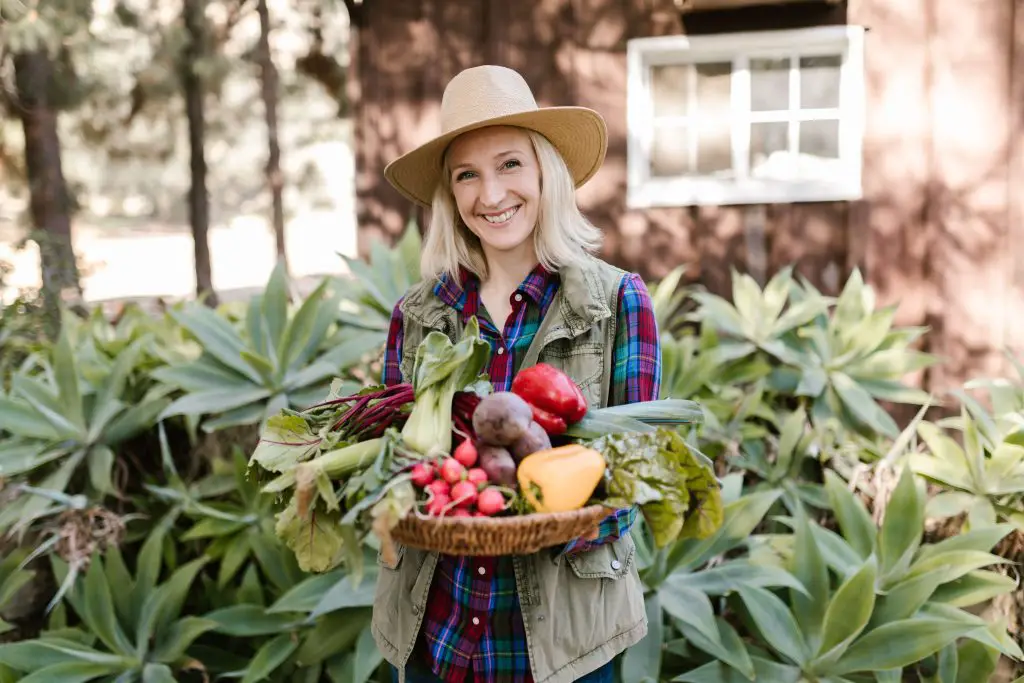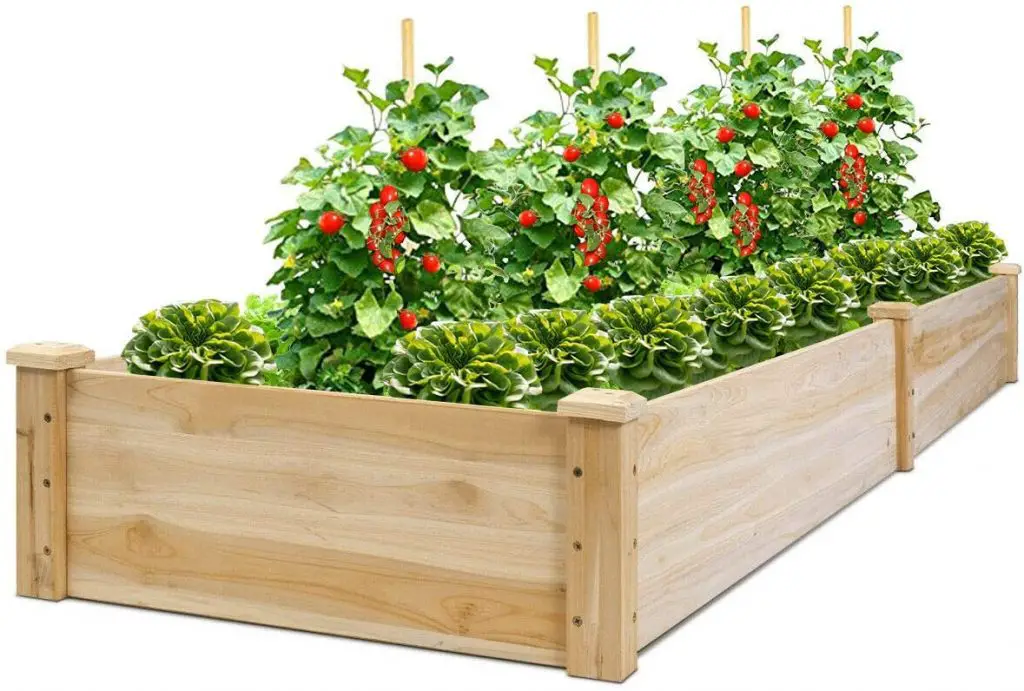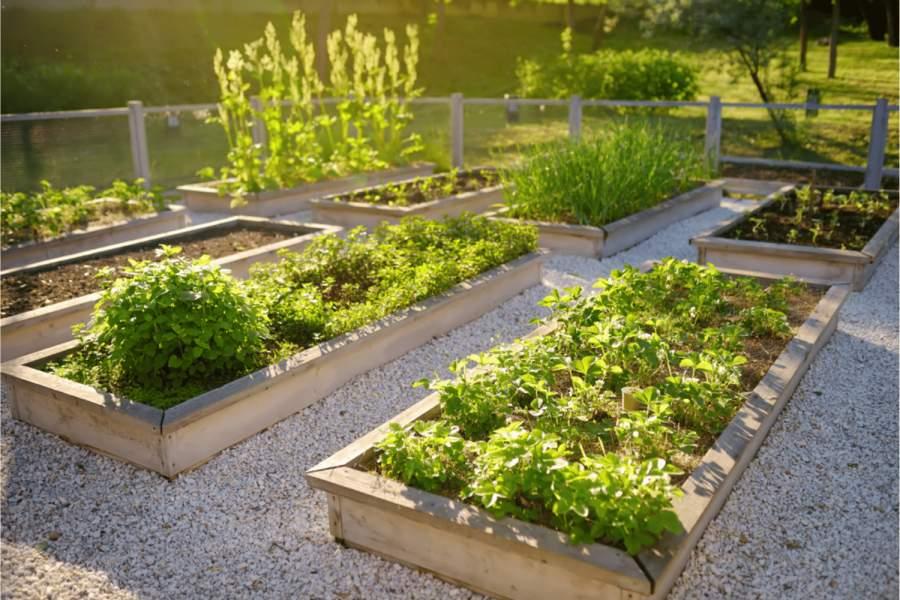If you are lucky enough to own your own home and land, you should know that there is so much you can do with that property. It’s more than just a place to sit back and relax. No, you can actually use your yards to create your own little farmland with backyard farming. And with that, you can become self-sustaining, good for the environment, and relaxed thanks to a new pastime that is not only good for your body and stomach but also for your heart and soul.
Backyard farming is a concept that takes spaces used every day and turns them into a mini-farm. Also called micro-farms, these little locations are just like the bigger alternatives. There, you can grow fruits and vegetables and even tend to small animals as well.
Starting backyard farming will save money, save the environment, eat healthily, and become self-sustaining. You can even put your compost pile to good use – if you compost. What’s not to love?
A common misconception is that you need a lot of space in your yard to start backyard farming. But that simply is not the truth. In fact, you can get one started in no time at all and will soon be living off the land. But the best part is that you’ll be living off of your own land.
The Advantages Of Backyard Farming
One of the most valuable benefits of owning backyard farming is that you may significantly reduce your regular shopping expenditure and budget. It also aids in the reduction of your carbon impact.
The next benefit is that users and backyard farmers can get some time in the sun, exercise, and a good mental break while setting up and maintaining their backyard farm. Most doctors say that a half-hour of exercise every day is also a fantastic approach to get free from the unhealthy lifestyles most of us lead in front of computers.
And don’t forget eating properly. When you have a backyard farm, you will be eating a lot better too. You may lessen your reliance on fruits and veggies that have been exposed to a range of hormones and chemicals. The healthy vitamin richness in backyard veggies and fruit is also increased compared to what you can purchase at the market.
Composting is another great benefit of having a backyard farm. Composting is a way to get rid of your waste in a way that is very favorable to the environment and helps more plants and produce grow. You should invest in composting even if you don’t have a backyard farm. You can even easily create your own composting bin for your backyard farm area!
Creating and keeping up your backyard farm is also a terrific activity for stress reduction and rejuvenating the soul. Attending it entails having a calm mind and heart. It’s a very therapeutic experience.

Disadvantages Of Backyard Farming
There are a few drawbacks to backyard farming. But they generally don’t overpower the good that comes from it. However, they should be remembered when setting up your backyard farm so you are not caught off guard if they occur.
One of the biggest cons of backyard farming is that it may attract pests. From bugs to mice to deer, you may soon find unexpected visitors in your yard. And they aren’t just there to look at your farm. No, they will want to munch and nibble on what you have, which can cause significant harm to the plants, fruits, and veggies you’re growing.
It also takes a lot of time to maintain your farm. You will have to water your farm often, check the status of your crops, and make minor adjustments. However, the amount of time you have to use is well worth it.
If you are willing to shoo away pests you don’t want and also have the time to keep up the hard work, there are very few downsides to creating and maintaining your backyard farm.
How To Build Your Own Backyard Farm
Check The Weather
The first thing you need to do when you have the idea of starting a backyard farm is to take a good hard look at the local weather in your area. You need to know whether your climate’s hot, dry, cold, or wet.
The purpose behind this is that you’ll soon know what plants, vegetables, and fruits can grow in your area. By understanding your home’s climate, you now know what has the best chance of making it and thriving.
Take note of what is already growing in your yard. You can add whatever is to your farm, knowing it’ll grow well in your yard.
Get Your Supplies
Now you will need supplies. Honestly, you’ll need to acquire quite a few items, so you should make a sound, hearty shopping list. You can find all the items needed at local home supply stores and even big-box retailers.
You will need fertilizers and manure, as well as mulching materials too. Wood chips, soul, and sturdy wood are also mandatory if you want to build the backyard farm boxes that will be filled with your upcoming plants.

Build Your Garden
You’ll need to choose a proper location once you’ve decided what flourishes naturally in your area and what means you have to maintain it.
When you look at typical farms, you’ll see that things are in straight lines. Backyard farming doesn’t have to function like that. You shouldn’t need a lot of equipment and can’t just produce food wherever. As a result, the choices become increasingly limited. This is a positive development.
Determine the various locations on your property where you may start gardening. Examine the best in the area and determine where plants should be placed and where good soil may be found.
This provides you the opportunity to plant a variety of veggies and plants. You also must evaluate water sources. It is impossible to maintain a farm if you cannot grow plants on a frequent and convenient basis.
Once your garden has been built, and the plants have been put into the ground, you should follow the instructions so each veggie or fruit or produce and maintain them. Keep a close eye, watch them grow, and find ways to expand your backyard farming experience more and more.
